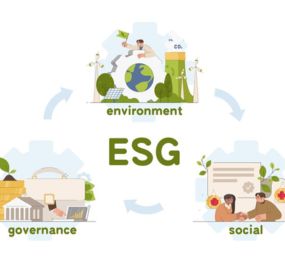Effective stakeholder engagement is essential for the success of environmental, social, and governance (ESG) initiatives. By actively involving stakeholders, businesses can build trust, enhance transparency, and create shared value.
Why Stakeholder Engagement Matters
- Informed Decision-Making: Stakeholder engagement provides valuable insights and perspectives that can inform decision-making and improve the effectiveness of ESG initiatives.
- Enhanced Reputation: Strong stakeholder relationships can enhance a company's reputation and brand image.
- Risk Mitigation: By identifying and addressing potential risks and concerns early on, companies can mitigate negative impacts and strengthen their social license to operate.
- Increased Innovation: Engaging with stakeholders can lead to innovative solutions and new opportunities for collaboration.
Key Stakeholder Groups
- Employees: Employees are a critical stakeholder group. Engaging with employees can help identify opportunities for improvement, boost morale, and enhance productivity.
- Customers: Engaging with customers can help companies understand their preferences and values, and develop products and services that meet their needs.
- Investors: Investors are increasingly interested in ESG performance and can provide valuable insights and support for sustainable initiatives.
- Communities: Engaging with local communities can help build trust, address social and environmental concerns, and create positive social impact.
- Suppliers: Engaging with suppliers can help ensure ethical and sustainable supply chains, and reduce environmental and social risks.
- Government: Engaging with government agencies can help shape policies that support sustainable business practices and address regulatory challenges.
Strategies for Effective Stakeholder Engagement
- Active Listening: Actively listen to stakeholders' concerns, feedback, and ideas.
- Transparent Communication: Be transparent about your company's ESG performance and goals.
- Two-Way Dialogue: Foster open and honest communication with stakeholders.
- Collaborative Decision-Making: Involve stakeholders in decision-making processes.
- Regular Reporting: Provide regular updates on your ESG performance and progress towards your goals.
- Community Engagement: Invest in community development projects and support local initiatives.
- Supplier Engagement: Work with suppliers to promote sustainable practices and ethical labor standards.
By prioritizing stakeholder engagement, businesses can build trust, enhance their reputation, and create lasting value. Effective stakeholder engagement is not just a best practice but a strategic imperative for companies seeking to achieve long-term sustainability.
To register or learn more about the Forum please check here: https://www.leadventgrp.com/events/esg-and-climate-africa-summit/details
For more information and group participation, contact us: [email protected]
















